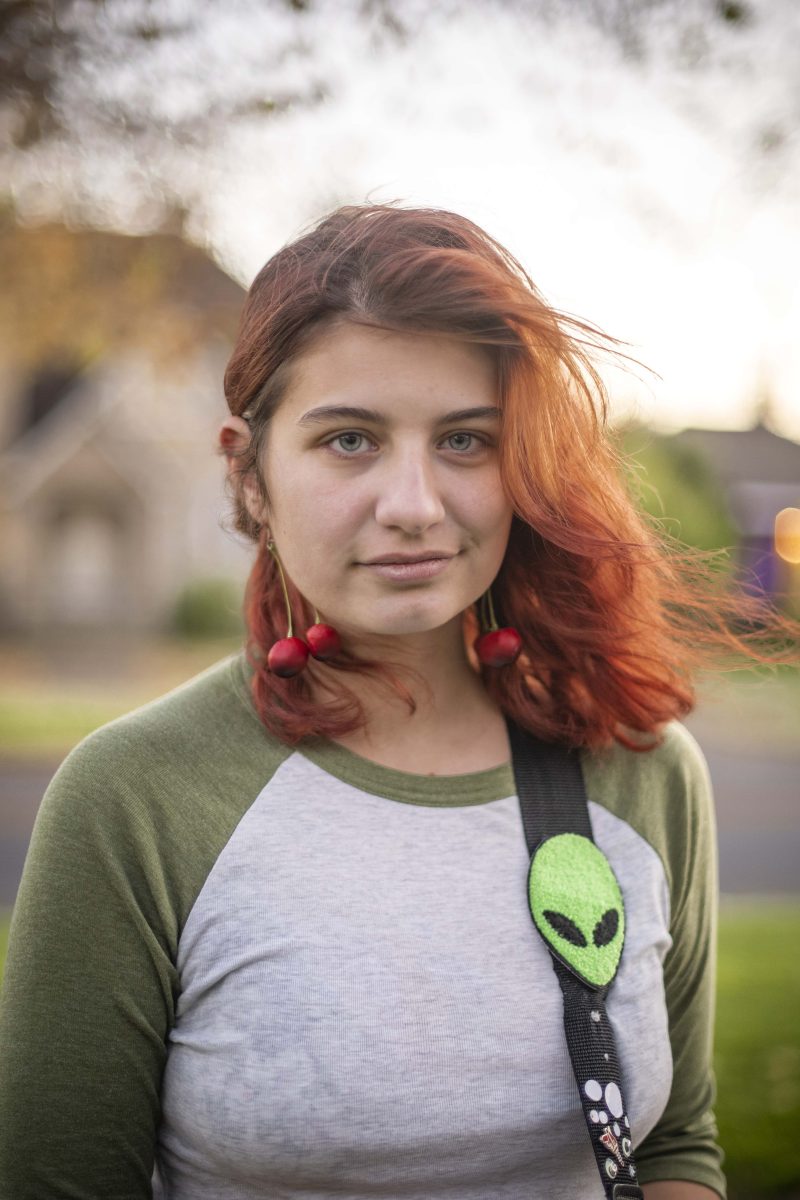Story by Evan Arnold-Gordon
Photo by Jaejin Lee
To read this article in Spanish, click here.
When Marlene Luivano Palmerin first got to the University of Oregon she didn’t know what to expect. She was thousands of miles from her hometown of Morelia, Mexico and had only visited the United States once to visit her family in Chino, California. She had a very similar life to a young adult living in America; go to school, do her homework and go out with her friends during the weekends. She takes her two dogs out with her when she goes bicycling and is studying French as well as Italian. But family is a big part of life for Marlene. Every week it is common in Mexico to have family reunions. “It was very difficult for me to have to say goodbye to my family but I know Oregon is the next step in my career to become an environmental scientist”.
Evan Arnold-Gordon: What are some of the problems with the environment in Mexico today?
Marlene Luivano Palmerin: One of the biggest, most important issues is deforestation. There is a lot of deforestation and contamination that comes from all the cars. Mexico has a lot of biodiversity especially in the South of the country because it rains so much but not as much in the North because of how arid it is. There are many people trying to do the right thing and stop the cutting down of trees but corruption is also a big problem. When our government tries to impose a new law to protect our natural environment, a corrupt person can simply bribe an official from the government to change the law.
E: What are they doing to try and fix the problem?
M: I don’t know what they are going to do to fix it, it is a really important topic currently. There are the people that hold the power and can make a difference but they just manipulate the situation in their favor. If the person in power isn’t corrupt, then someone who is will use threats or bribes to attain what they want, it’s a very depressing cycle. In Morelia they are trying to do their part in helping with the environment as well. The problem is if you really dedicate yourself to helping there still isn’t too much you can achieve. If you want to protect a specific place in nature because there is a high concentration of biodiversity, there is a good probability that someone crooked will threaten your family. It is very frustrating and scary.
E: Why did you choose to focus on studying environmental science and come to the University of Oregon?
M: Since I was a little girl I’ve known that there is a problem with contamination, that something just wasn’t right. My favorite activities as a kid were being outside in nature and being around animals. I thought I can help fix this problem and although it won’t affect me, maybe it will effect my children’s generation and their children after. Ah yes, how did I choose the University of Oregon? My school, U.N.A.M, had a list of colleges that had a transfer agreement with my school. I looked through the list for a school compatible with my studies and a University I felt comfortable at. I looked up the University of Oregon on the Internet and was immediately captivated. The rain, the trees and the nature in all directions drew my attention. It was evident to that the University of Oregon was much more advanced in the fight for environmental protection, which was very refreshing.
E: What are your plans for the future and explain why you’re named Marlene?
M: After finishing spring term here at the University of Oregon, I want to continue my studies at an investigation institute that dedicates itself to protecting the natural environment with the government. By doing this I hope to learn ways of applying my education immediately when I get back to Mexico. I asked my mom the same question. Apparently when my mother was pregnant with me there was a song called, “Lilly Marlene”, and she thought it was so pretty she named me after the song.
Migrating Ducks: A Journey to Protect the Environment
April 2, 2014
Artículo por Evan Arnold-Gordon Foto por Jaejin Lee Para leer este artículo en inglés, cliquea aquí. Cuando Marlene Luviano Palmerín llego a la Universidad de Oregón no sabía que esperaba. Estaba miles de millas de su casa en Morelia, México y solo había visitado los Estados Unidos una vez para […]
0
More to Discover












